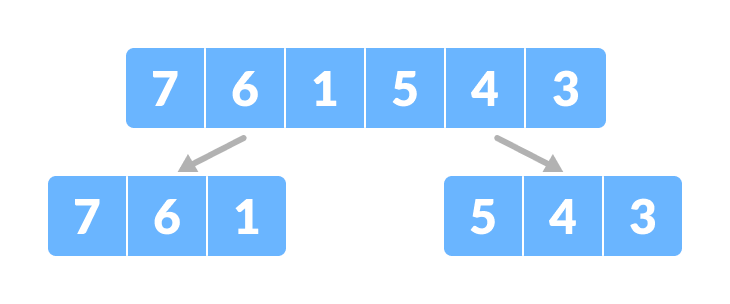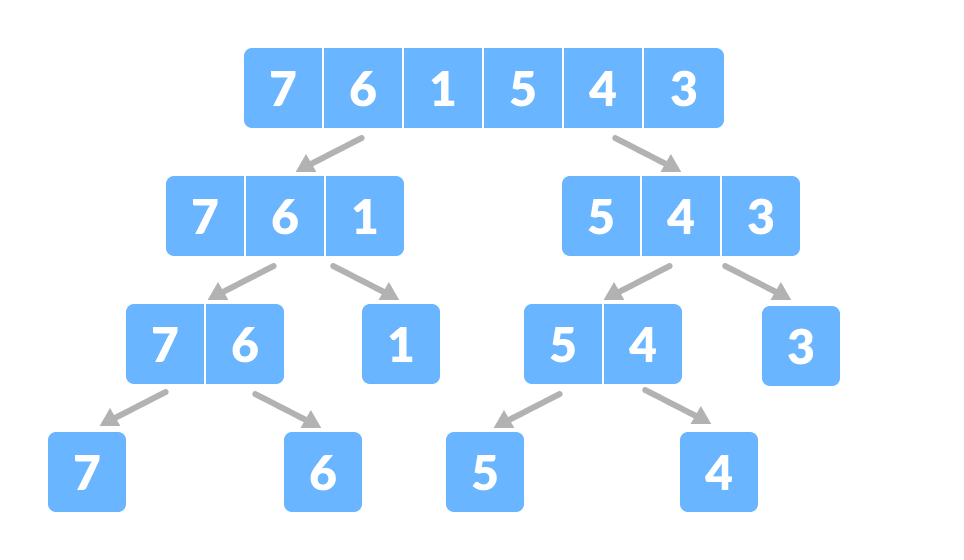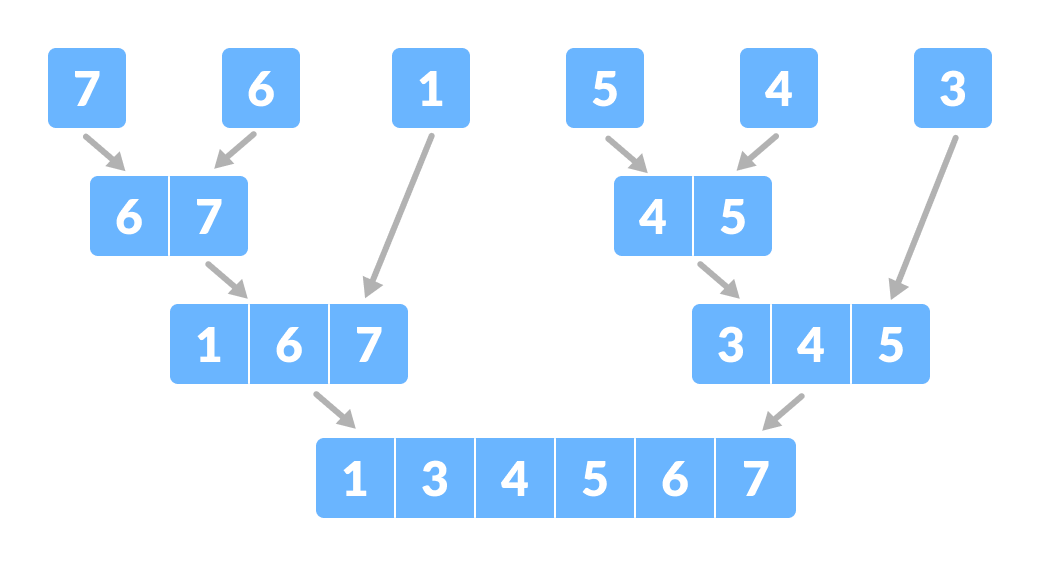分而治之算法是一种通过以下方法解决大问题的策略
- 将问题分解为较小的子问题
- 解决子问题,以及
- 合并它们以获得所需的输出。
要使用分治法,需要使用递归 。了解不同编程语言中的递归:
- Java中的递归
- Python的递归
- C++中的递归
分而治之算法如何工作?
涉及的步骤如下:
- 除法 :使用递归将给定的问题分为子问题。
- 征服 :递归解决较小的子问题。如果子问题足够小,则直接解决。
- 合并:合并子问题的解决方案,这是递归过程的一部分,以获取实际问题的解决方案。
让我们借助示例来理解这个概念。
在这里,我们将使用分而治之的方法(即合并排序)对数组进行排序。
- 让给定数组为:

合并排序数组 - 划分阵列分为两半。

将数组分为两个子部分 同样,将每个子部分递归地分为两半,直到获得单个元素。

将阵列分成较小的子部分 - 现在,以排序的方式组合各个元素。在这里, 征服和合并的步骤并存。

合并子部分
复杂
使用主定理计算分而治之算法的复杂度。
T(n) = aT(n/b) + f(n),
where,
n = size of input
a = number of subproblems in the recursion
n/b = size of each subproblem. All subproblems are assumed to have the same size.
f(n) = cost of the work done outside the recursive call, which includes the cost of dividing the problem and cost of merging the solutions
让我们举一个例子来发现递归问题的时间复杂度。
对于合并排序,等式可以写成:
T(n) = aT(n/b) + f(n)
= 2T(n/2) + O(n)
Where,
a = 2 (each time, a problem is divided into 2 subproblems)
n/b = n/2 (size of each sub problem is half of the input)
f(n) = time taken to divide the problem and merging the subproblems
T(n/2) = O(n log n) (To understand this, please refer to the master theorem.)
Now, T(n) = 2T(n log n) + O(n)
≈ O(n log n)
分而治之与动态方法
分而治之的方法将一个问题分成较小的子问题,这些子问题可以递归进一步解决。每个子问题的结果都不存储以供将来参考,而在动态方法中,每个子问题的结果均存储以供将来参考。
当同一子问题没有多次解决时,请使用分而治之的方法。当将来要多次使用子问题的结果时,请使用动态方法。
让我们通过一个例子来理解这一点。假设我们试图找到斐波那契数列。然后,
分而治之的方法:
fib(n)
If n < 2, return 1
Else , return f(n - 1) + f(n -2)
动态方法:
mem = [ ]
fib(n)
If n in mem: return mem[n]
else,
If n < 2, f = 1
else , f = f(n - 1) + f(n -2)
mem[n] = f
return f
在动态方法中, mem存储每个子问题的结果。
分而治之算法的优势
- 使用朴素方法将两个矩阵相乘的复杂度为O(n 3 ) ,而使用分而治之方法(即Strassen矩阵乘法)的复杂度为O(n 2.8074 ) 。这种方法还简化了诸如河内塔之类的其他问题。
- 这种方法适用于多处理系统。
- 它有效地利用了内存缓存。
分治法
- 二元搜寻
- 合并排序
- 快速排序
- Strassen的矩阵乘法
- 唐津算法
- 二元搜寻
- 合并排序
- 快速排序
- Strassen的矩阵乘法
- 唐津算法